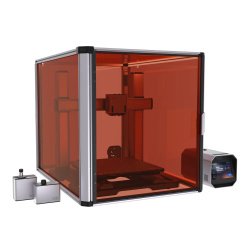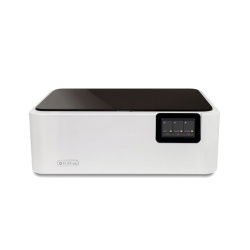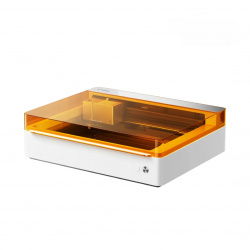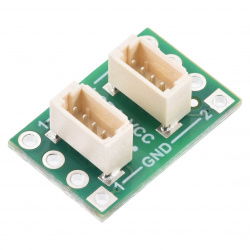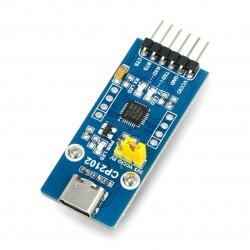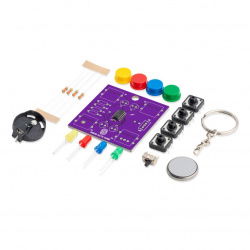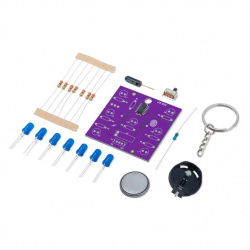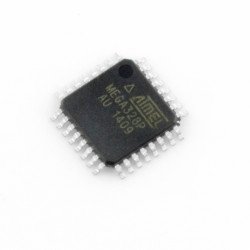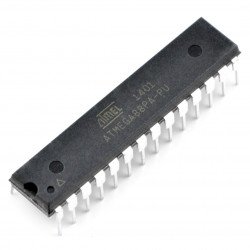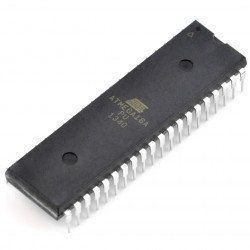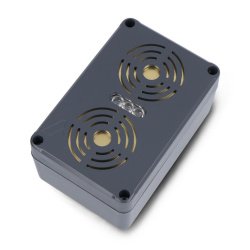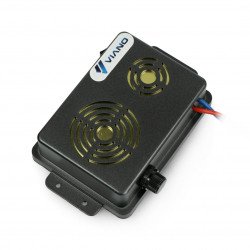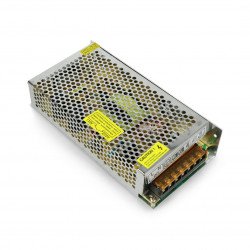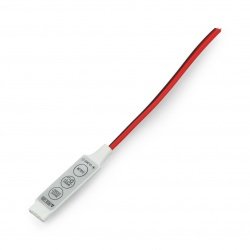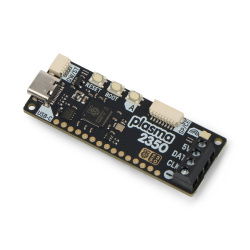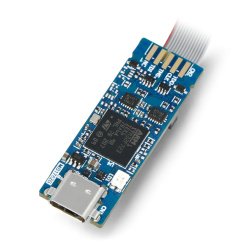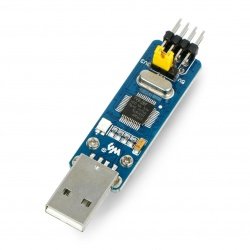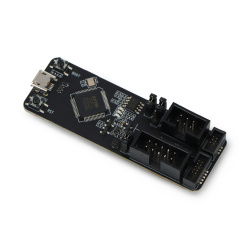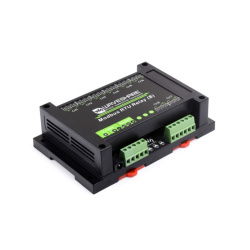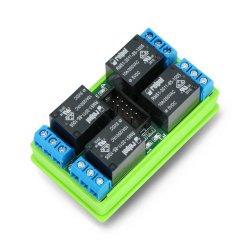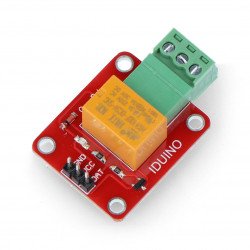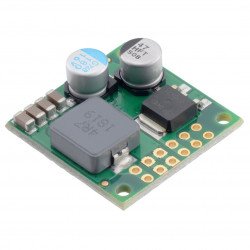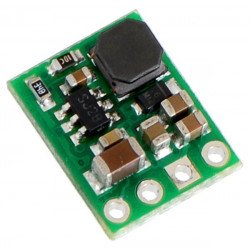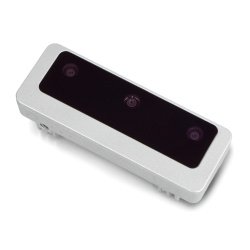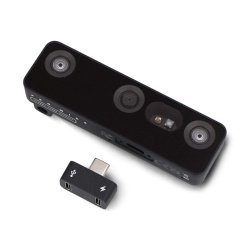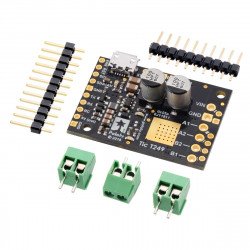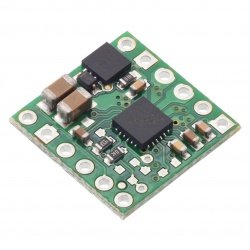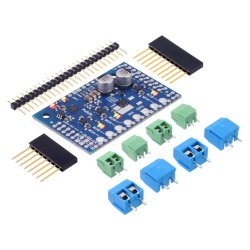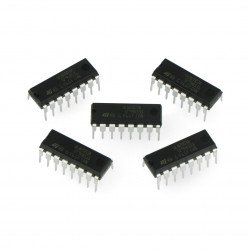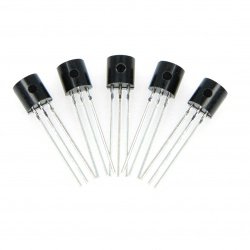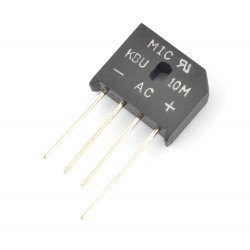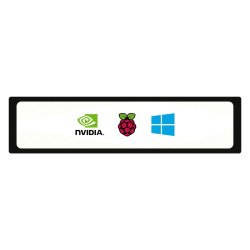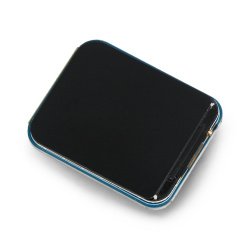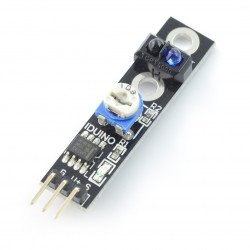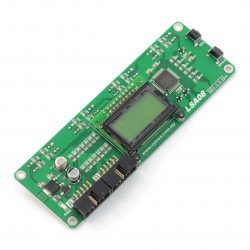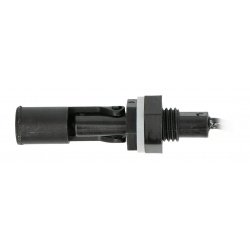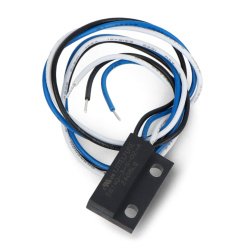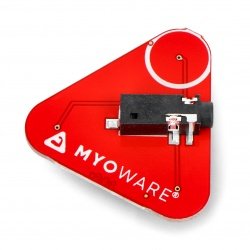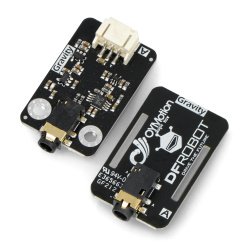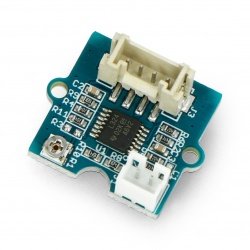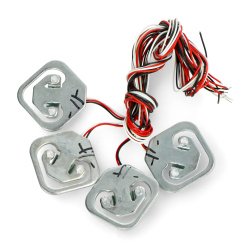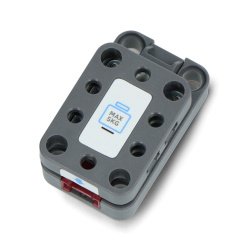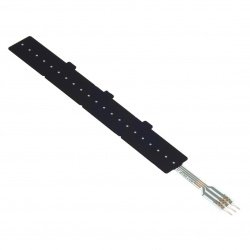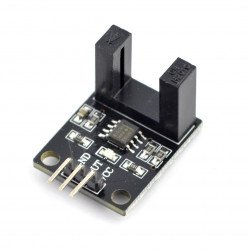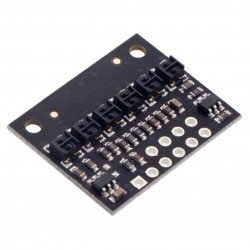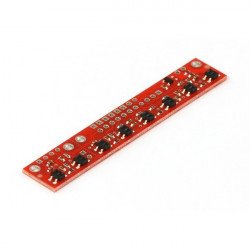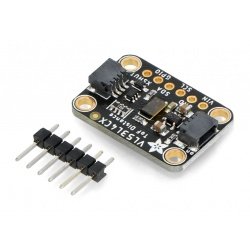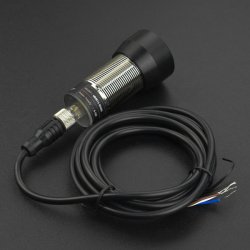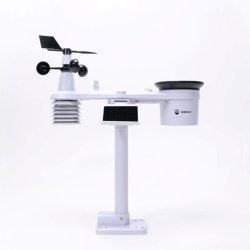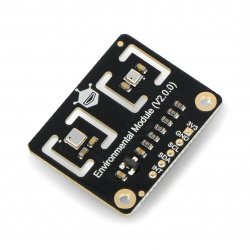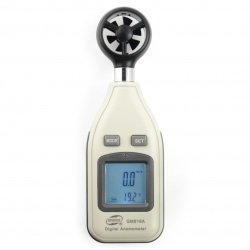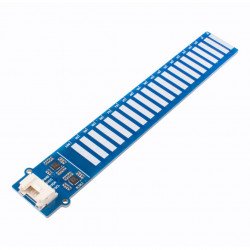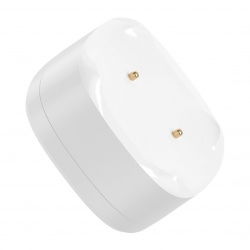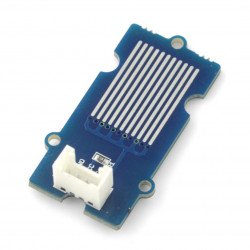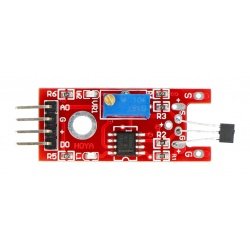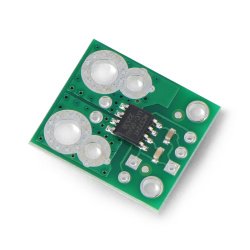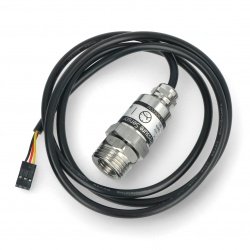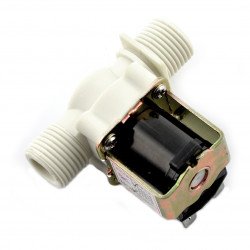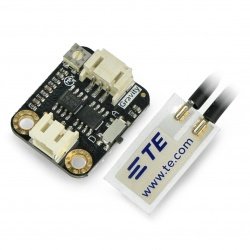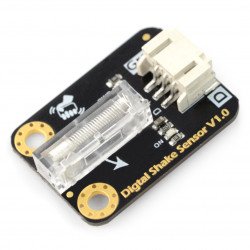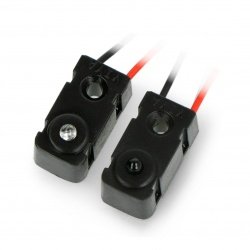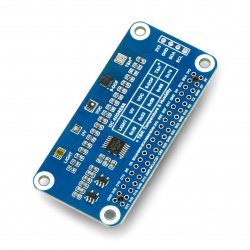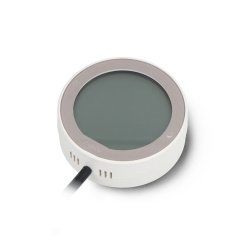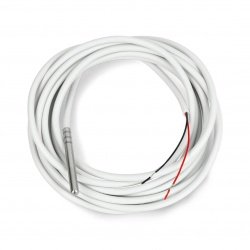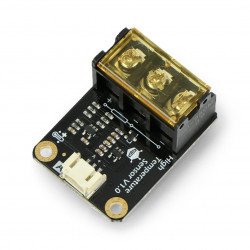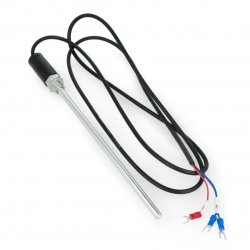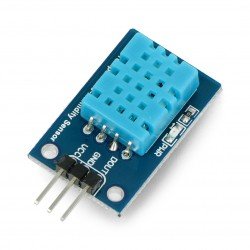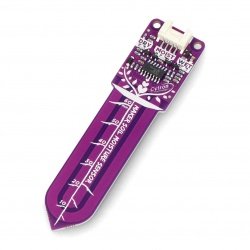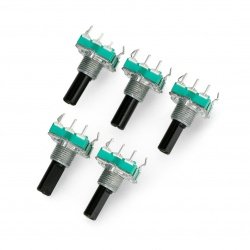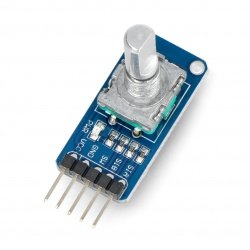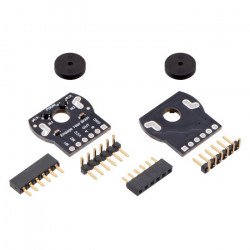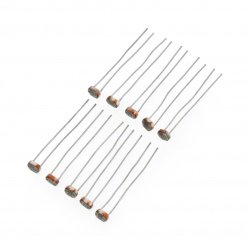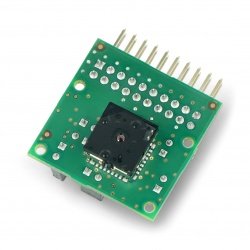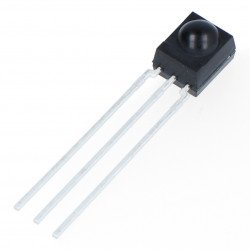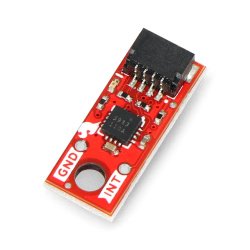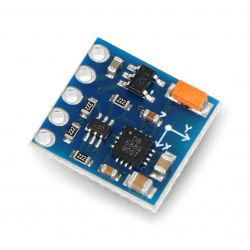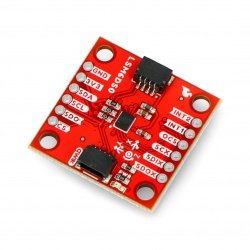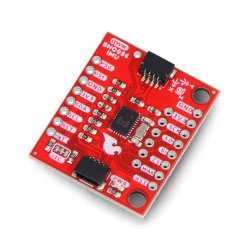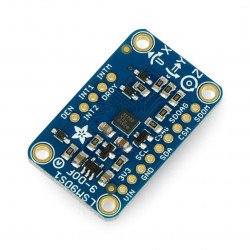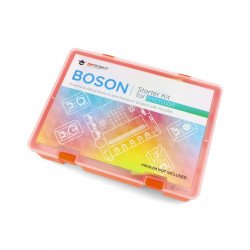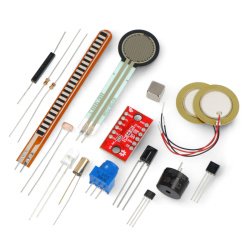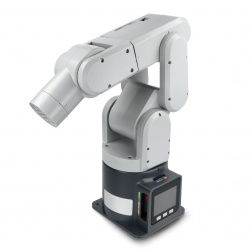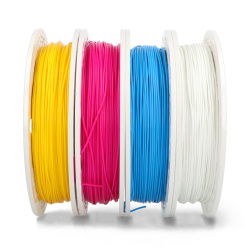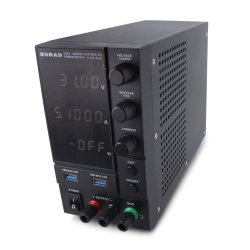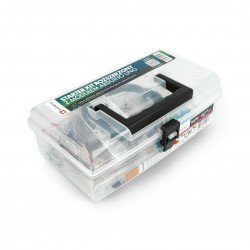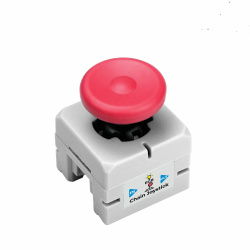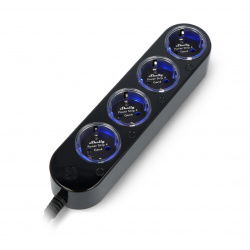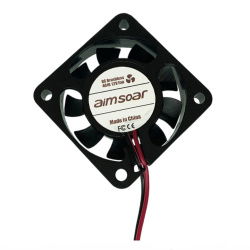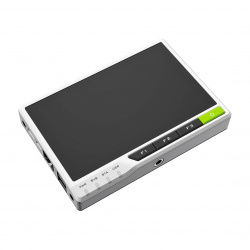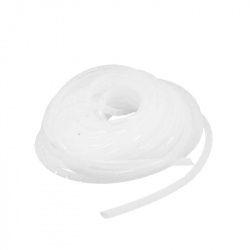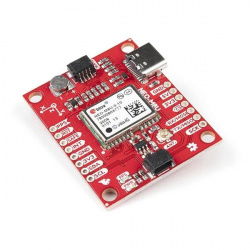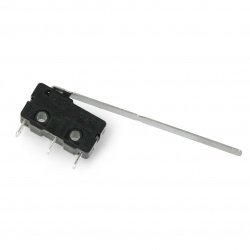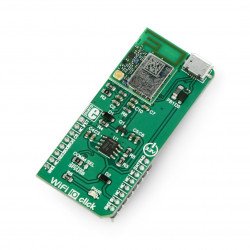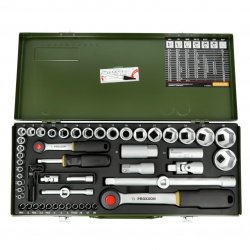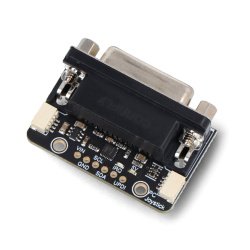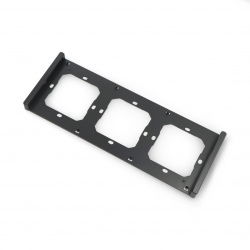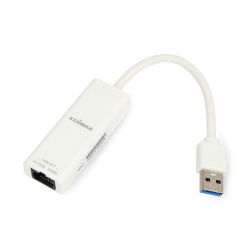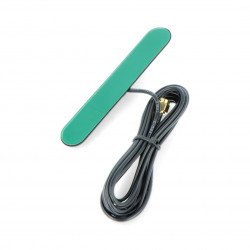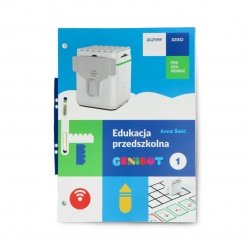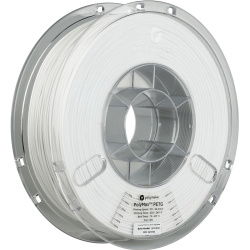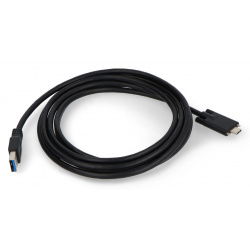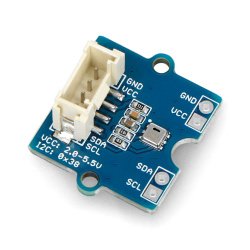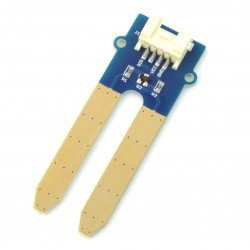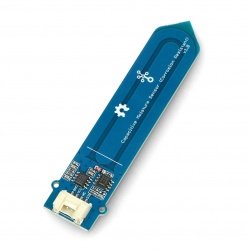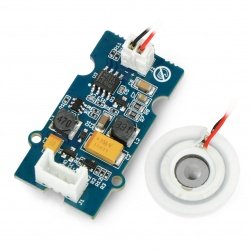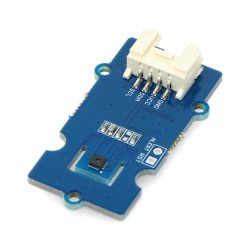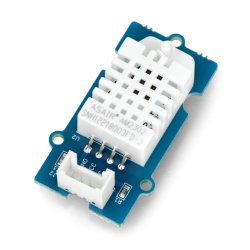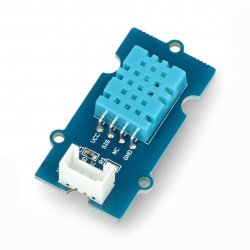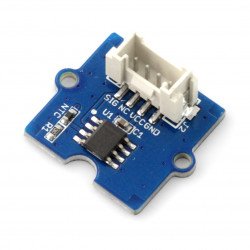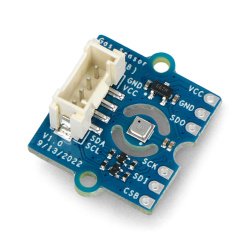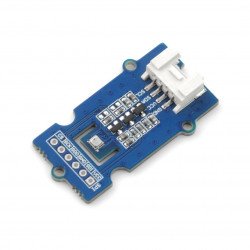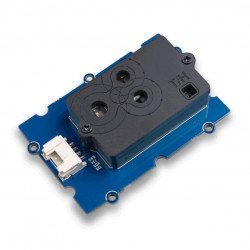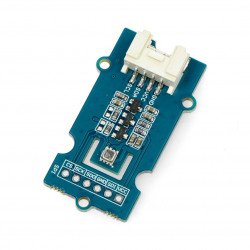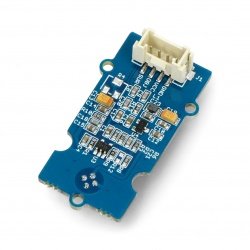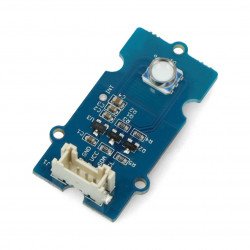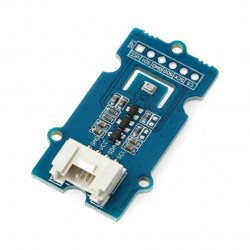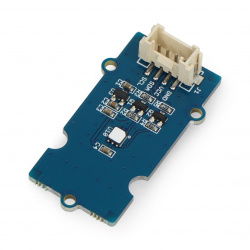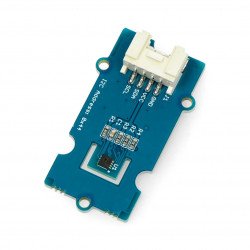In industrial automation systems and automated production processes, temperature, humidity and pressure sensors are very often used. The quantity measured by them is usually converted into a voltage signal, which is delivered to a microcontroller contained in the measuring system. Such sensors are also found in the automotive industry, as well as in hobbyist constructions, for which atmospheric parameter sensors in the form of Grove modules that you can connect to Arduino are excellent.
Grove - weather sensors
Grove - precipitation / water sensor
The Grove sensor used to detect the presence of water or its quantity. It is powered with the voltage of 5 V. It can be used to detect the presence, level or absence of water.Grove - water level sensor - 10cm - Seeedstudio 101020635
Sensor to measure the water level in a vessel up to 10 cm using the Arduino module. The measurement is made by volume . The tile is equipped with a Grove connector, for...Grove AHT20 - temperature and humidity sensor - I2C - - Seeedstudio 101990644
The Grove AHT20 is a new generation sensor, enabling even more accurate measurements. The AHT20 has a newly designed ASIC with an improved MEMS semiconductor moisture...Grove - sensor / probe for measuring soil moisture v1.4 - analog
The sensor allows you to determine the moisture level of the soil. It is supplied with the voltage from 3.3 V to 5 V. The output has analog voltage, which increases its value...Grove - capacitive humidity sensor - corrosion resistant
The device is used to measure the soil moisture by the capacitive detection. It has a built in voltage regulator which provides an operating voltage in the range from 3.3 V to...Grove - SHT35 - temperature and humidity sensor - I2C
Highly accurate SHT35 temperature and humidity sensor. It measures temperature from -40°C to 125°C with an accuracy of 0.1°C and humidity from 0% to 100% RH with an accuracy of...Grove - temperature and humidity sensor DHT22 (AM2302)
Module with temperature and humidity sensor with a digital single-wire interface. Measuring range: temperature -40 °C to +80 °C, humidity is from 0% to 100 % RH.Grove - temperature and humidity sensor DHT11 - Seeedstudio 101020011
The sensor of temperature and humidity DHT11 from the Grove series. The output is a digital signal. The temperature measurement range is from 0 °C to 50 °C and...Grove - temperature and humidity sensor - SHT41 - Seeedstudio 101021033
The Grove SHT41 is a next-generation digital sensor based on Sensirion's industry-proven humidity and temperature sensors. The temperature measurement range is from -40°C to...Grove - TDS sensor/meter for measuring water quality - Seeedstudio 101020753
TDS meter, which allows you to determine the purity of water based on the measurement of the dissolved content of organic and inorganic compounds in the liquid. The...Grove - analog NTC temperature sensor
Analog sensor is compatible with Arduino and Raspberry Pi. It is powered with the voltage from 3.3 V to 5 V. It can measure temperature in the range from -40 °C to 125 °C with...Grove BME688 - I2C 4in1 AI sensor - gas, pressure, temperature and humidity - Seeedstudio 114992989
Grove series module equipped with BME688 sensor. It is the first sensor equipped with artificial intelligence (AI) that measures gas, pressure, temperature and humidity with...Grove - BME280 - humidity, temperature and pressure sensor 110kPa I2C 3-5V
The Grove module is equipped with a humidity, temperature and pressure sensor powered with the voltage of 3.3 V to 5 V with I2C and SPI interface. Measuring range: temperature:...Grove - CO2 & Temperature & Humidity Sensor (SCD30)
The Grove module from Seeed Studio is equipped with a sensor of humidity, temperature and carbon dioxide. (SCD30) is a high precision carbon dioxide sensor based on Sensirion...Grove - Temperature, Humidity, Pressure and Gas Sensor BME680 I2C/SPI
The BME680 sensor module allows you to measure temperature, humidity, pressure and gas simultaneously. The board is equipped with a Grove connector. It communicates via I2C or...Grove - infrared thermometer OTP-538U IR
Module from the Grove series, based on a sensor OTP-538U which, to measure the temperature, is using the analysis of infrared radiation in the range from -10 °C to 100 °C. It...Grove - HP206C Pressure sensor I2C
High quality Grove pressure sensor, equipped with HP206C. It has a wide measuring range from 300 hPa to 1200 hPa. It is fully compatible with Arduino, it is connected to it via...- Reduced price
- SPECIAL OFFERS
Grove - BMP280 - Pressure and temperature sensor I2C/SPI
Pressure and temperature sensor, model BMP280, Grove. Used to measure atmospheric pressure and ambient temperature. It is compatible with Arduino. It has a small size, consumes...Grove - TH02 - I2C temperature and humidity sensor
Temperature and humidity sensor TH02 from Grove with I2C interface. The temperature measurement range is from 0 °C to 70 °C and humidity from 0 to 80% RH .- Reduced price
- SPECIAL OFFERS
Grove - temperature and humidity sensor SHT31 I2C
The module is equipped with SHT31 temperature and humidity sensor. On the board there is a Grove connector for easy connection of the module to the Base Shield cover. It...See also
- Grove - starter kits
- Grove - base hats
- Grove - accelerometers and gyroscopes
- Grove - actuators
- Grove - gas & dust sensors
- Grove - medical sensors
- Grove - distance sensors
- Grove - current sensors
- Grove - force sensors and limit switchers
- Grove - light and colour sensors
- Grove - LED
- Grove - sensors and potentiometers
- Grove - converters
- Grove - communication modules
- Grove - sound modules
- Grove - relays
- Grove - cables
- Grove - buttons, keys and joysticks
- Grove - motor drivers
- Grove - displays
- Grove - covers and accessories
Temperature sensors - different designs, one goal
The purpose of measurements made with temperature sensors is to obtain information about the degree of cooling or heating of the object of measurement. One of the most common designs of temperature measurement sensors are thermistor sensors, which can be found in medical thermometers. A change in body temperature causes a change in the current flowing through the thermistor, whose resistance can also change. A thermistor is made of semiconductor materials that are particularly sensitive to temperature changes. The resistance of the thermistor decreases as the temperature of the object of measurement increases. Thermocouple sensors, on the other hand, use wires made from an alloy of two pieces of metal to measure temperature. The design of a thermocouple sensor uses the Seebeck effect as its operating principle. The difference in thermodynamic characteristics of metals, in which the alloy of the measuring wire is made, causes the creation of a strong potential difference, proportional to the temperature of the measuring environment. The use of a thermocouple allows for wide measuring ranges. The thermocouple sensor reads the thermoelectric voltage, which is its output signal. In infrared temperature sensors, a beam of infrared light is sent toward the measurement object and reflected back to the sensor. The signal from the IR sensor is converted into a voltage proportional to the emissivity of the object of measurement and dependent on the calibration of the sensor.
Measuring the humidity of the environment
Humidity sensors are among the most important devices that are used in home appliances, as well as in industry, medical instruments and environmental engineering. Humidity determines the water content present in the atmosphere, which affects, among other things, the well-being of living organisms, electronic devices sensitive to humid atmospheres, as well as the operation of electrical isolation systems in transformers and power lines, especially those operating at high and highest voltages. One popular design of humidity sensors, is the capacitive sensor, which measures relative humidity. They use a capacitor whose dielectric is made of a hygroscopic polymer and is sensitive to changes in humidity, which causes changes in the capacitance of the measuring capacitor. Such sensors are used, among other things, in observing changes in the frequency of electrical oscillations of an LC oscillator, when testing pharmaceutical products. The drug in the form of the test preparation acts as a dielectric, which is inserted between the measuring electrodes. The frequency of the electrical oscillator changes with the humidity surrounding the test preparation.




